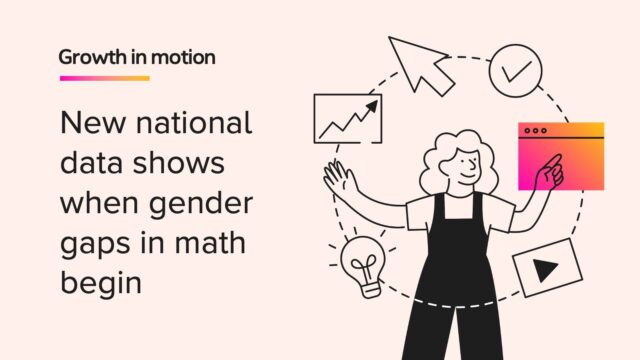
Over the course of a nearly two-decade teaching career, I realized that teaching can be lonely. I worked tirelessly to support all students each day in a classroom with just them and me. Sometimes, my colleagues and I didn’t know what to do next for some students. We’d exhausted all our instructional tools and still had students who were not progressing. We needed an instructional coach.
I was a classroom teacher for 19 years. I LOVE teaching and learning! It’s my passion and it brings me such joy—the joy to have influence in a child’s life and guide each student’s learning journey. One day, my husband asked, “How is it that every class of students each year is the best class you’ve ever had?” I paused. “I don’t know. I just love watching each one learn and grow.”
His question helped me realize that teaching and learning are joyful and oh-so rewarding. However, teaching and learning are also rigorous and complex—and teachers shouldn’t have to do it alone. Instructional coaches provide support so that teachers can best serve their students.
Instructional Coach: Definition and Goals
An instructional coach can be defined as an educational leader who helps teachers strengthen instruction and assessment practices in their classrooms. Coaching is a learning journey for educators. Both coaches and teachers have their own journey at their own pace. We must honor the personal journey.
What Instructional Coaching Is and Is Not
Why instructional coaching? First, clarity of purpose and desired outcomes of instructional coaching are critical. The principal focus of coaching shouldn’t be to improve teacher performance but to collaborate alongside a teacher, be a thought partner (not the expert), analyze instruction, and check for understanding to help students learn and grow.
Coaches don’t need to have all the answers; they need to have the questions that will facilitate a meaningful conversation and end with successful teacher instructional shifts to improve student learning. Effective coaches remember to celebrate the successes, too.
The desired outcomes of instructional coaching include:
- Teacher and student success
- Adult and student learning
- Deepening teacher, coach, and student conceptual understanding, thinking, and reflection
- Building a risk-taking environment where teachers and coaches try something new with their students
- Celebrating learning and trying again after making a mistake
- Teachers have a cheerleader, confidant, and partner
For all these outcomes to happen, we must build trust, vulnerability, and compassion with each other and our students. And we need to have a relentless belief that everyone can learn and grow. We should never give up on finding ways to positively impact student learning. Lastly, we all need an advocate, partner, and friend who understands and will take risks with us.
What Does an Instructional Coach Do?
The role of an instructional coach is to support teachers in their pursuit of student learning. Teachers make instructional decisions ALL day, EVERY day. Coaches support the analysis of these decisions and their impact on student learning.
Facilitation/Coaching Skills
Instructional coaching includes the art of facilitation and coaching of adult learners. These skills are critically important to truly support teachers on their learning journey as educators.
1. Ask, Don’t Tell
- Dig deeper into teachers’ thinking by asking questions and guiding them to make their own decisions. If we give an “answer,” the analyzing and thinking stops.
- Ask many questions to guide the conversation to self-discovery.
- Remember: adults don’t typically learn by being told what to do.
- Try asking questions coaches like these to get the conversation started: “Tell me more about _______.” “Why do you think _______?” “How would _______ look?”
2. Check for Understanding
- Confirm what was shared. End the coaching session with a clear understanding of what you heard and what the teacher’s action will be until the next session.
3. Listen Intentionally
- Listen to understand, not respond.
- Ask questions.
- Paraphrase.
4. Develop Acuity
- Be aware of how others feel by observing facial expressions, body language, and so on, and try to perceive what teachers and students need.
- Pay attention to how a message lands for another person.
5. Use an Economy of Language
- Use fewer words to get the point across.
- Be clear about the directions you give, and start with the action.
“Doing” Instructional Coaching
A wonderful and successful instructional coach I know was working with a teacher she’d been coaching for some time. The teacher was really struggling with developing and implementing engaging lessons. He was trying very hard, but it seemed he just couldn’t quite “see” how to plan relevant lessons.
As they were debriefing a lesson, the coach offered to plan a lesson using the curricular resources. She would come back the next day and teach the lesson while the teacher observed. Then they would debrief.
It worked beautifully! The teacher could “see” the changes needed in his lessons and felt more confident to make them. He had new tools for engaging lessons. His learning journey continued.
The list below provides some ways for coaches and teachers to work together. It is in no particular order. Together, the coach and teacher decide which collaboration is most helpful.
- Co-plan rigorous, relevant, and engaging lessons.
- Observe live or recorded lessons. Include insights about what the teacher does and what the students are doing. Debrief afterward to support growth and learning.
- Model lessons that are co-planned and debrief afterward.
- Share your teaching and learning stories of success, failure, and growth.
What Are the Measures of Success for an Instructional Coach?
After 19 years of teaching, I became a principal. One of the hardest things I’ve had to do in this role is measure how changes in adults’ actions lead to student gains. Being an instructional coach later in my career reinforced this difficulty.
So, how do we measure the success of instructional coaching? I’ve tried to do classroom walk-throughs and take notes about adults’ actions and their influence on student learning. It was cumbersome and just didn’t work. I also felt the evaluation system for teachers should be separate from instructional coaching. Otherwise, I feared teachers wouldn’t be willing to take risks and grow.
The goal of instructional coaching is to support teachers in making successful instructional decisions for their students. With this goal in mind, measuring student growth helps to demonstrate the success of instructional coaching. Analyzing student work to identify strengths and misconceptions so teachers can adjust instruction and move more students forward is key. This process is difficult, so having a coach's support increases the success of both teacher and student.
How to Become an Instructional Coach
Becoming an instructional coach begins with a passion for students and learning. Successful coaches have resilience and a relentless belief that teachers will learn and grow in service of their students.
Many instructional coaches were teachers first. Coaches who made that transition share their personal stories in the blog “From Teacher to Implementation Coach: Finding Fulfillment Back in the Classroom” and the webinar “From Great Teachers to Great Coaches.”
The Journey Never Ends
After 35 years in education, I believe that the teaching and learning journey never ends—nor should it. There’s always new educational research, new funding resources, new ways to use allotted funds, new teaching resources and materials, new academic standards, and new teachers and administrators joining districts. So long as everyone is starting with how to help students learn, then everyone is part of a worthwhile journey.
The views expressed in this article are those of the author and do not necessarily represent those of HMH.
***
Instructional coach duties and responsibilities positively impact teacher and student success. For more support in your role, find out about our nationally recognized professional learning community for access to ongoing coaching and on-demand resources. Learn more.
Invest in the overall health of your educational team and your teachers’ individual growth with a long-term coaching plan. Find out more in this webinar, "Coaching for Greatness: Every Teacher Deserves a Coach."
Be the first to read the latest from Shaped.












